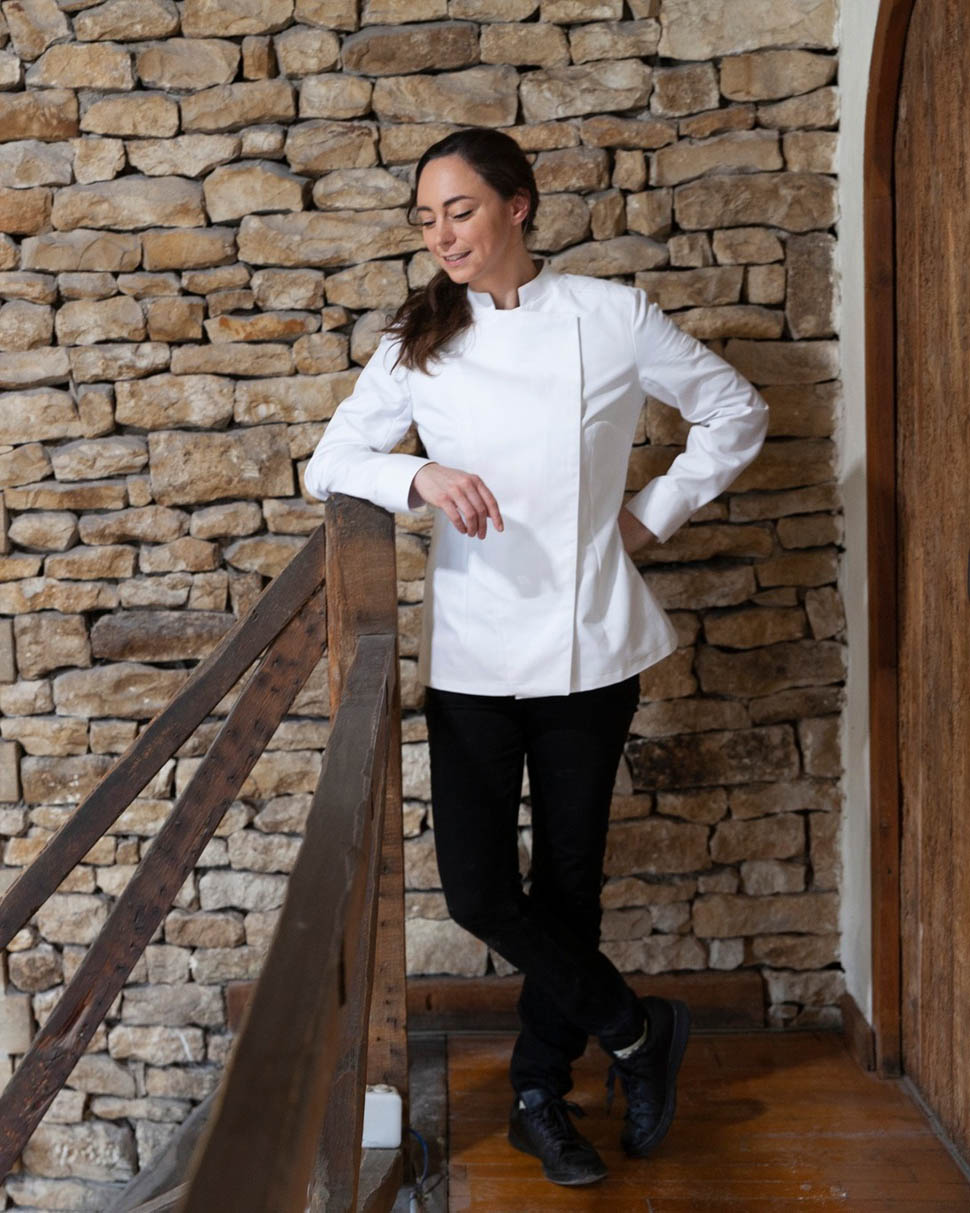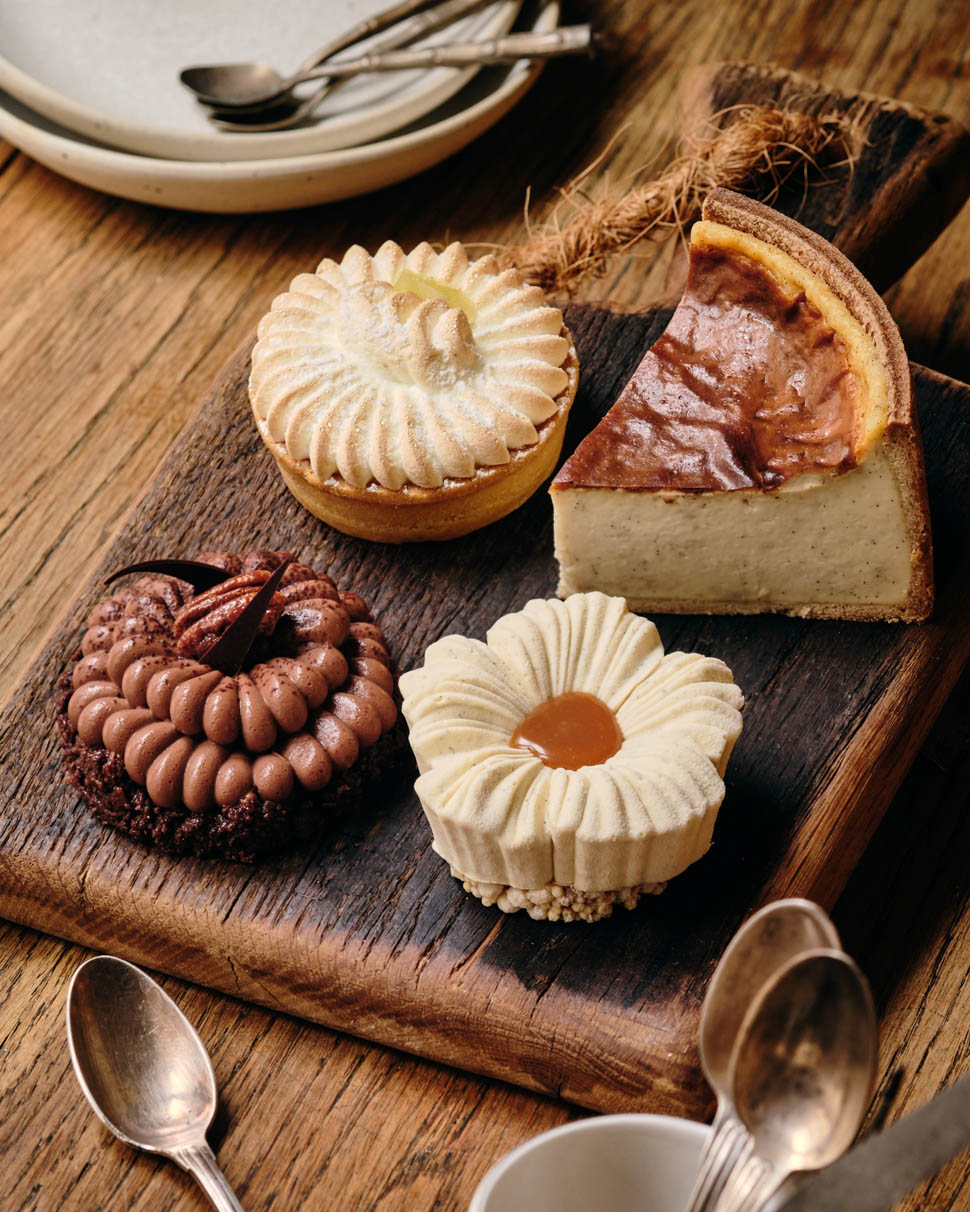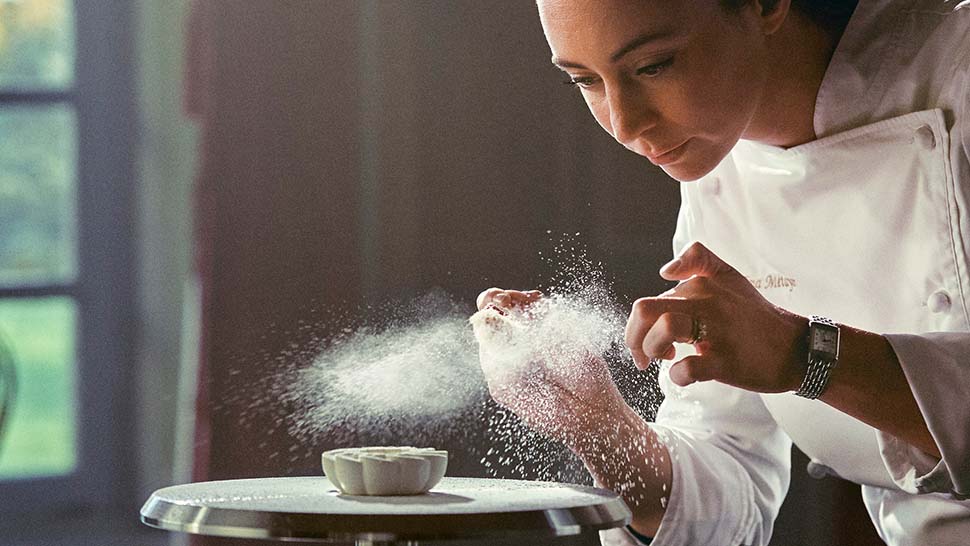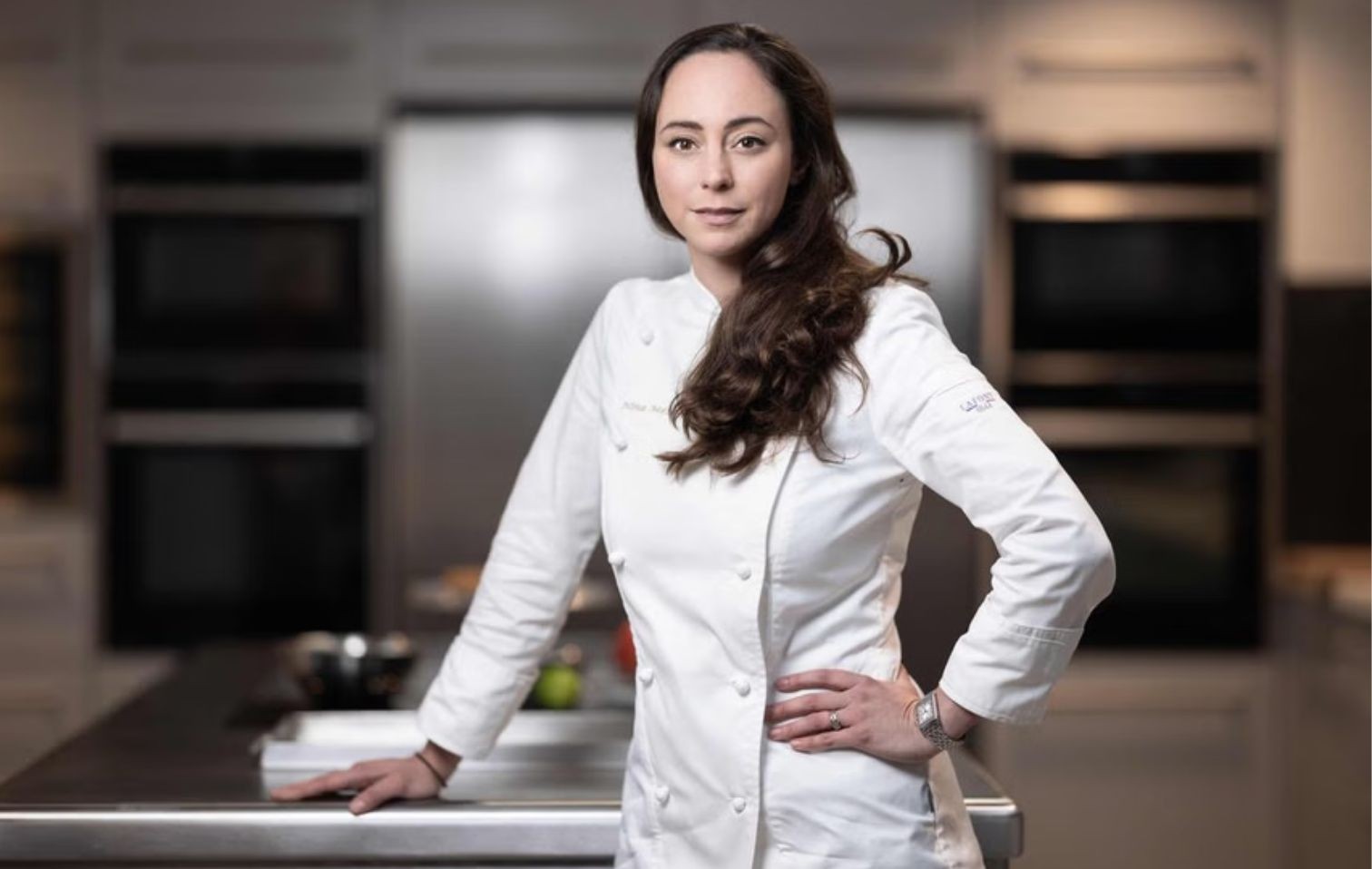Leading a team of 85 people, Métayer adopts a management philosophy based on collaboration and participatory knowledge exchange. “A leader is not someone who can do things, it's someone who can pass them on.”
Cover photo: AFP
The News
Fine pastry is not just about technique or perfect recipes. It is an art in constant motion, a legacy that is not just to be cherished but must be constantly reinvented. Nina Métayer, elected World Pastry Chef 2023 by the Union Internationale des Boulangers-Pâtissiers and recently awarded the title of World's Best Pastry Chef 2024, is convinced of this. Her vision combines the craftsmanship of artisanship with the opportunities offered by technology, demonstrating that the future of pastry is a balance between past and present, between manual skill and digitization. For Métayer, pastry is first and foremost a heritage of knowledge that must be passed on with respect and creativity. It is not enough to reproduce learned techniques; they must be reinterpreted, adapted to one's time. “Craftsmanship is not to freeze a knowledge, but to make it live and reinvent it," she states with conviction to the microphones of Food&Sens.

A concrete example of this philosophy is the role that digital has taken in its business model. Thanks to online sales platforms, Métayer has revolutionized the distribution of its products, reducing waste and optimizing production. “Digital allows us to work better, avoid the superfluous and respond precisely to customer demands." A key concept, which goes hand in hand with attention to raw materials and seasonality: innovating does not mean betraying tradition, but giving it new tools to express itself. Métayer has chosen to abandon the classic format of physical boutiques to develop a hybrid model, in which production adapts to demand. Its “delicatisserie” works on a made-to-order basis, minimizing waste and always guaranteeing maximum freshness.

But the pastry chef does not stop there: she also wanted to reconnect with the local area, taking over the boulangeries where she began her training in La Rochelle. A return to her origins which is not only a sentimental choice, but also a strong message: to value local realities and the direct relationship with the public. “Everything started here: coming back has a symbolic and practical value.” In its stores, the customer experience is at the center: on-sight workshops allow patrons to watch the masters at work, turning the purchase of a cake into a moment of discovery. “We don't just sell sweets: we tell a story, we share a craft.”

Leading a team of 85 people, Métayer adopts a management philosophy based on collaboration, kindness to staff and participatory exchange of knowledge. “A leader is not only the one who can do, but also the one who can teach,” she says, emphasizing the futility of flaunting “boss-like” attitudes without sharing knowledge with subordinates. For her, continuing education and professional development of employees are essential to building a solid and innovative enterprise. In addition to technical mastery, Métayer stresses the importance of managerial and entrepreneurial skills. “They teach us how to bake, but not how to run a business. You have to train, surround yourself with good people, and learn to take risks." Another crucial issue for the chef is the role of women in gastronomy. Her career has been marked by the need to overcome obstacles and prejudices, and today she encourages young female professionals to believe in their own abilities. “We must not wait for a position to be granted to us: we must take it”. A strong message that resonates in an industry where, at last, female figures are getting the visibility they deserve.

Nina Métayer's journey shows that craftsmanship can be both rooted in tradition and projected into the future. Her commitment to the transmission of knowledge, attention to the land, and intelligent use of technology represent a model of confectionery that reconciles quality, affordability, and responsibility. Far from outdated formulas, Métayer demonstrates that excellence is not a static concept, but a dynamic balance between innovation and respect for roots. Because, in the end, “a good pastry is first and foremost a story of passion and sharing.”











